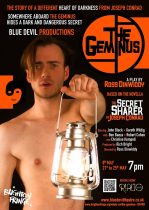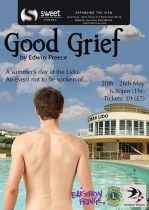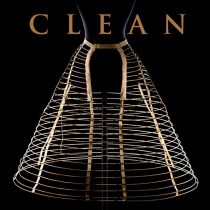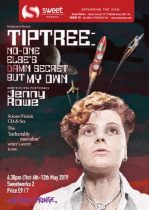Further Education
By Pete Barrett
Directed by Pip O’Neill and Luke Ofield
Unmasked Theatre
New Writing South Best New Play Award 2019 Shortlist
Unmasked Theatre present their second NWS shortlisted show this Fringe; also a 2018 Brighton Scratch Night winner, they delivered a well-received extract at the last Sussex Playwrights event, so we’re well primed for this often very funny slice of recent history.
1985. The miners’ strike is raging, communities are in conflict and the picket lines need manning. Barrett’s play, written a few years after the picketing wars, is only now receiving its first production. Yet it feels so recent, relevant and raw – and how can all those great songs be over thirty years old?
Neil James as Frank is an everyman fish out of water with a Not Going Out vibe, a 40-something striking Liverpudlian miner dossing in a group of right-on young feminist students’ grotty cluttered flat. We’re with him in his distaste for their Mates, bras and disgusting mug-infested squalor – his Superwoman wife would never let THAT happen.
Frank’s the most complex character in the piece, a creature of contrasts – he’s an eloquent exploration of what it might be to be the man of the house, the exhausted life-risking breadwinner in an ultimately doomed job. Staring at middle age and with another kid on the way, this cause – and this fling – might be his last chance to reconnect with his youth and secure a future. And while calling out the casual unthinking sexism of the miners, all set to beat up offending colleagues, he’s still up for launching into a family-betraying affair.
As an unlikely class-hopping friendship develops between Frank and Chris Gates’ hilarious philandering tutor Jake, channelling Hugh Grant as a chap with a habit – it was apparently OK back then – there’s a subtext suggesting that even the nicest guy will fall, faced with a pretty girl young enough to be his daughter, and when the ring comes off, so does fidelity.
Jessica Smith (Emma), Bronte Sandwell (Claire) and Ella Verity (Rachel) are a great trio, delivering fresh, engaging performances as the larky flatmates. The girls don’t quite get away with it though; committed young feminists flip happily into a quick thrill with the thoughtlessness of youth, up for a fantasy bit of fun without consequences – until the reality is suddenly sitting in their house. Now we’re weighing how much we like them all with what two of them are actually up to.
Kim Wright (Melanie) and Karen Antoni (Anne), both playing weeks away from giving birth, drop the heaviness of pregnancy, slow difficult movements, responsibility personified, into this exhilarating mix. It’s a new twist, a new flavour introduced later on by wary seen-it-before Melanie and mistakenly secure Anne. We see potentially ruined lives played for farce, and it’s both funny and uncomfortable, but we never really resolve the betrayal in these relationships. It’s about Frank and his midlife crisis – and how he deals with a terrible event in a way that can only bring more pain to his family.
This show has that essential zippy, pacey feel, with naturalistic dialogue, jags of humour and jolts of surprise in the writing, and real energy and verve in ensemble playing and direction. Ofield and O’Neill’s cast bicker and bitch, blending heartfelt soul searching and an entertaining physicality.
Looking forward to the award announcements.
The Rialto til June 2
Philippa Hammond






